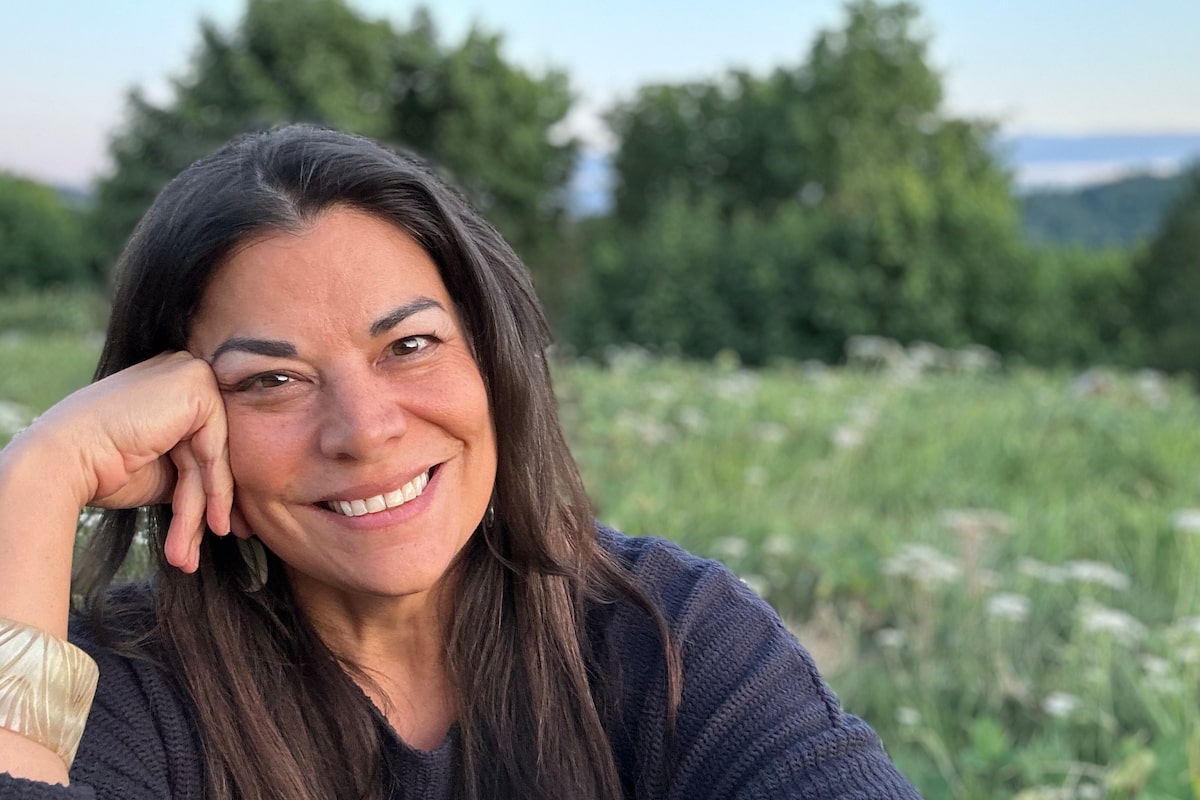Patrice Mousseau, founder of Satya Organic, managed to build a thriving beauty business without any entrepreneurial experience. Now, she’s helping other Indigenous founders achieve the same heights.Supplied
As the founder and CEO of Satya Organic, Patrice Mousseau has built one of Canada’s most successful Indigenous-owned skincare brands — and she’s determined not to be the last.
Satya is a certified B Corp — which means it is a for-profit company that meets rigorous standards of social and environmental performance, accountability and transparency, as certified by the non-profit B Lab — best known for its clean, plant-based formula, launched in 2014 out of its founder’s home kitchen. Ms. Mousseau, then a single mother and journalist, was looking for a solution to her infant daughter’s painful eczema. It led her to develop her own solution: a natural balm that worked better than anything she could find on the shelf.
“I never would have done it without her,” she says.
But what began as a personal project quickly took on a life of its own. After she brought her first jars to a farmers’ market, interest in her products spread by word-of-mouth, eventually earning the interest of major retailers. Satya is now a fixture on Canadian shelves. It was the first Indigenous-owned company to be stocked at Shoppers Drug Mart. Today, the brand is sold in more than 1,000 Shoppers stores across the country, as well as other retailers across the country and in the U.S. and Hong Kong.
“[Getting into Shoppers] was a real opportunity to expand our market here in Canada, and it’s been tremendous,” she says. “Our sales were so good that they actually moved us, and now we’re seated between their No. 1 and No. 2 bestsellers. I’m hoping that I’m the first of many.”
But while this milestone was hugely transformative for the company, it is also meaningful because of what it represents: a source of inspiration for other Indigenous businesses. Indeed, while her business continues to grow, Ms. Mousseau’s focus has shifted toward helping others achieve the same.
Before entrepreneurship, she had spent years working in radio and television, a far cry from product development and distribution.
“I didn’t come from a multi-generational business background,” she says. “I didn’t know anybody who started their own business. It wasn’t on the radar.”
Ms. Mousseau says her role is often about helping entrepreneurs slow down
and see the bigger picture.Supplied
As Entrepreneur in Residence at Flint Hub, an Indigenous-focused business incubator housed at the University of Waterloo’s United College, she mentors young founders through the early stages of their ventures. This is essential as, she says, many are struggling to find funding and any kind of accessible support.
“With an Indigenous perspective, there are so many other factors that are considered when you’re building a business,” she explains. “What’s your impact on community? How are you giving back? What effect is this going to have on the environment? How are you treating your people? These are all things that are inherent right from the get-go.”
Ms. Mousseau says her role is often about helping entrepreneurs slow down and see the bigger picture. “Sometimes you’re just moving so quickly, trying to do so much,” she says. “Very often it’s just me asking the right questions so they come to their own conclusions.”
One of the young entrepreneurs who she has been mentoring is Winter Dawn Lipscombe, founder of the Miskwaabiimizh Collective, a co-operative financing model that helps Indigenous entrepreneurs pool resources and invest in one another, a key pillar of her community. Lipscombe says the idea stemmed from “frustration with colonial banking systems that don’t align with the Anishinaabe values [she] was raised in.”
Ms. Lipscombe began meeting regularly with Mousseau through Flint Hub, and says she has found the experience invaluable. “One of the highlights of working with Patrice is her generosity with her creativity and her time. During our session, Patrice said, ‘What risk would you take if your kin held the safety net?’ That completely reframed how I was looking at my business. That phrase then became the tagline for my company.”
Flint Hub offers something few other spaces do. “It’s a space where I don’t have to explain or justify my worldview,” Ms. Lipscombe says. “Patrice and the folks at Flint Hub have created a space where Indigenous entrepreneurs can dream big without having to fit into a colonial mold.”
For Ms. Mousseau, that’s exactly the goal. She believes Indigenous entrepreneurship is on the cusp of exponential growth, and that success will ripple through communities.
“Once you have the first group of people who start doing it, and you see it in your community, it’s going to snowball,” she says. “There’s empowerment in being able to build something for yourself, which I think is very appealing to Indigenous people who maybe don’t trust the systems out there. They want to create their own.”
After a decade of building her business, mentoring others and breaking new ground, Ms. Mousseau’s advice is simple but resolute: “Just get started.” Ms. Lipscombe agrees, saying, “Some of the best opportunities came [into] my life because I was willing to ask myself ‘why not?’”
One in a regular series of stories. To read more, visit our Indigenous Enterprises section. If you have suggestions for future stories, reach out to IE@globeandmail.com.
